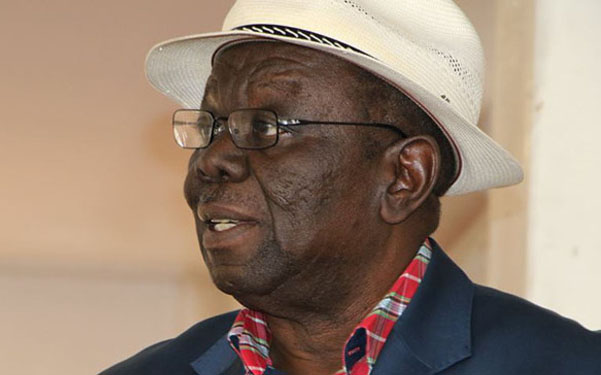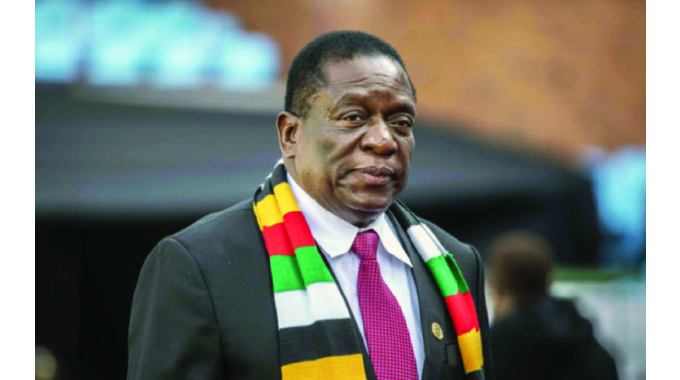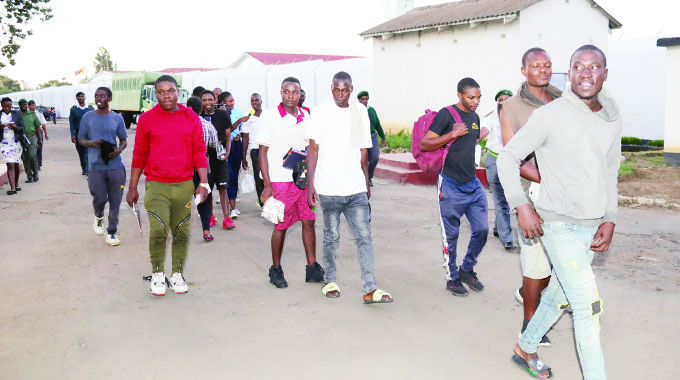White ex-farmers lose dam case

Fidelis Munyoro Chief Court Reporter
The High Court has set aside a determination that had awarded a syndicate of three white former farmers more than $111 000 for water used by a mining company on state-acquired land.
Justice Lavender Makoni on Friday last week, ruled that it was contrary to public policy and the land reform law for Pickwerl Mining (Pvt) Ltd to pay a syndicate consisting of three white former farmers compensation for drawing water from a dam they constructed. The trio of Mark Hook, Kurt Braunstein and Dennis Martin formed “Chawara Syndicate”, which constructed the dam that supplied water onto their farms.
The dispute arose out of contract between the contractor Chawara Syndicate and Pickwerl Mine. Chawara Syndicate owned agricultural tenements adjoining each other and constructed a dam called Chawara Dam in 1990s at their own cost.
The dam wall is partly on Donnside Farm where Kook lived growing tobacco and wheat and partly on Martin’s farm. Its throwback is on Braunstein’s farm. The syndicate in its claim argued that it cost them $2 600 000 to build the dam. Pickwerl entered a contract with the syndicate which granted the mining concern a 20-year water right on Chawara Dam thus the mine would draw water from the dam.
In July 2005, the parties agreed that Pickwerl would compensate Chawara Syndicate by way of monthly payments of $3 000 for the construction of the dam. It was also agreed that Chawara Syndicate would pump water from the dam using a pump house located on Doonside Farm.
Since May 2011, Pickwerl has not paid its dues and is in arrears in excess of $111 000. For breaching the contract, Pickwerl was dragged before an Arbitrator former High Court judge Justice Moses Chinengo, who ruled in favour of the syndicate. But Pickwerl Mine, which was represented by Advocate Thabani Mpofu, appealed at the High Court.
Adv Mpofu argued that the land on which the dam was situated was acquired by the State under the Land Acquisition Act, hence the syndicate no longer owned both the land and the dam. Further, the lawyer argued that Chawara Syndicate could not retain any rights in the land and his occupation on the farm was unlawful.
Adv Mpofu also brought to the court’s attention that the contract was concluded after the acquisition of the land. He said the arbitral award was contrary to the public policy of the country as it subverted a constitutional process. The State, argued Adv Mpofu, was the new owner of the land and Chawara Syndicate should seek compensation from the State not his client.
In reply, Chawara Syndicate lawyer Adv Julia Wood submitted that her client’s occupation of the land was lawful because he had never been charged with contravention of gazetted land. She argued that the issue of unlawful occupation of the land was irrelevant to the proceedings as the contract between the parties was for reimbursement of costs to pay for the dam wall.
Adv Wood denied that the award made by Justice Chinengo rewarded a criminal enterprise and that it was contrary to public policy. She insisted that the award was based on the contractual agreement which Pickwerl should adhere to.
The task of the court was to determine whether the arbitral award was contrary to the public policy as averred by Adv Mpofu and if it rewards a criminal enterprise. Justice Makoni found merit in Adv Mpofu’s submissions and set aside the arbitral award.
She accepted Adv Mpofu’s argument that Chawara Syndicate did not have any legal rights on the land since it was acquired in 2001. Justice Makoni also found that the other members of the syndicate vacated the farms in compliance with the law, but Hook did not do so.
She ruled that Hook’s continued occupation of the farm constituted a criminal offence. “The Constitution of Zimbabwe sets out the legal framework governing the land reform programme,” said Justice Makoni citing the provisions of the law.
“These provisions make the point that land reform programme is irreversible and consequently that the rights lost under the programme stand irrevocably lost. “In my view, the arbitral award endorses a criminal act in that section 3(2) of the Act, clearly provides that a former owner or occupier who does not cease to occupy the land on the expiry of the period prescribed “shall be guilty of an offence”.
Justice Makoni said in view of her finding, the counter application by Chawara Syndicate for the registration of the arbitral award automatically fell away.







Comments